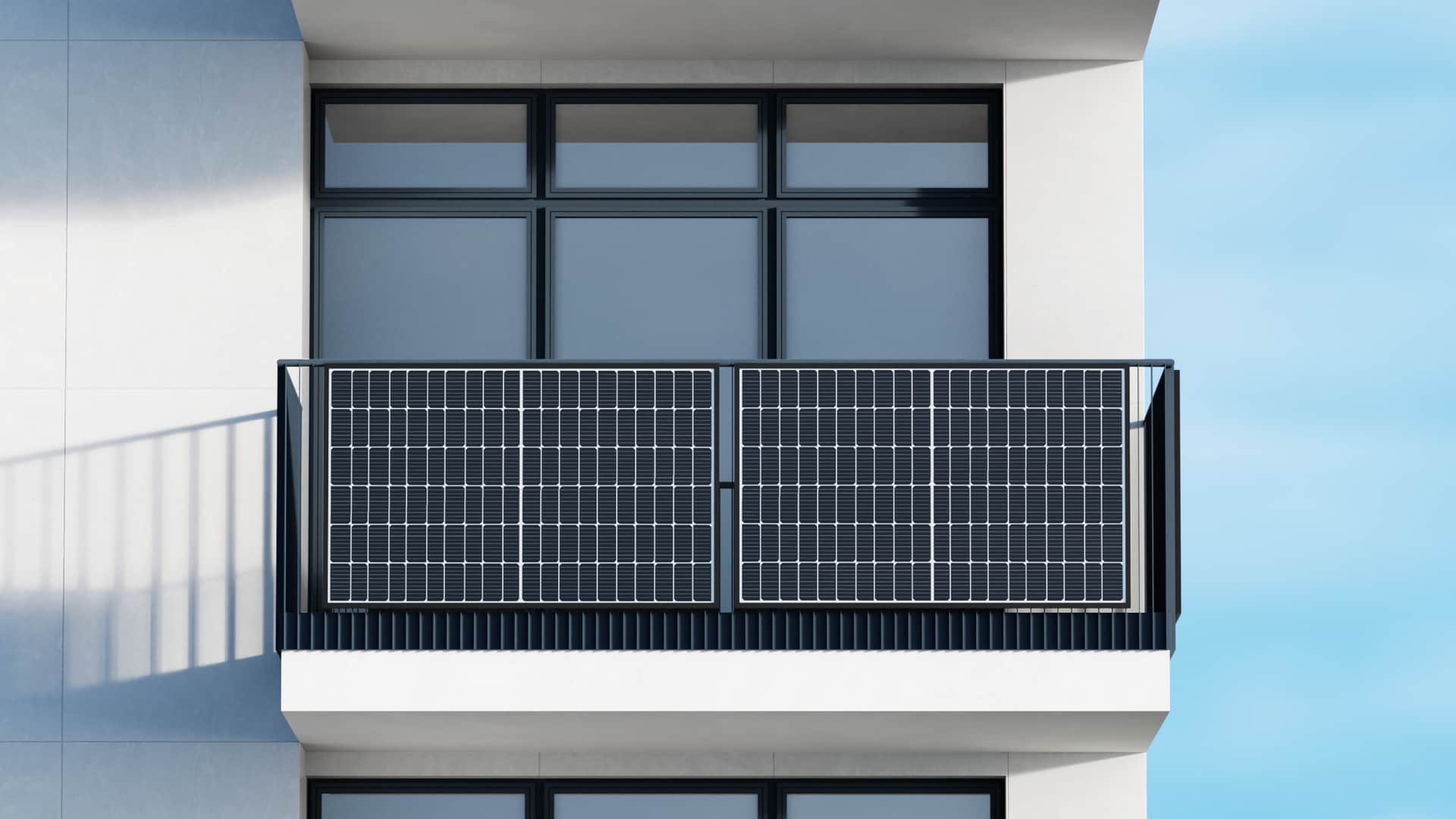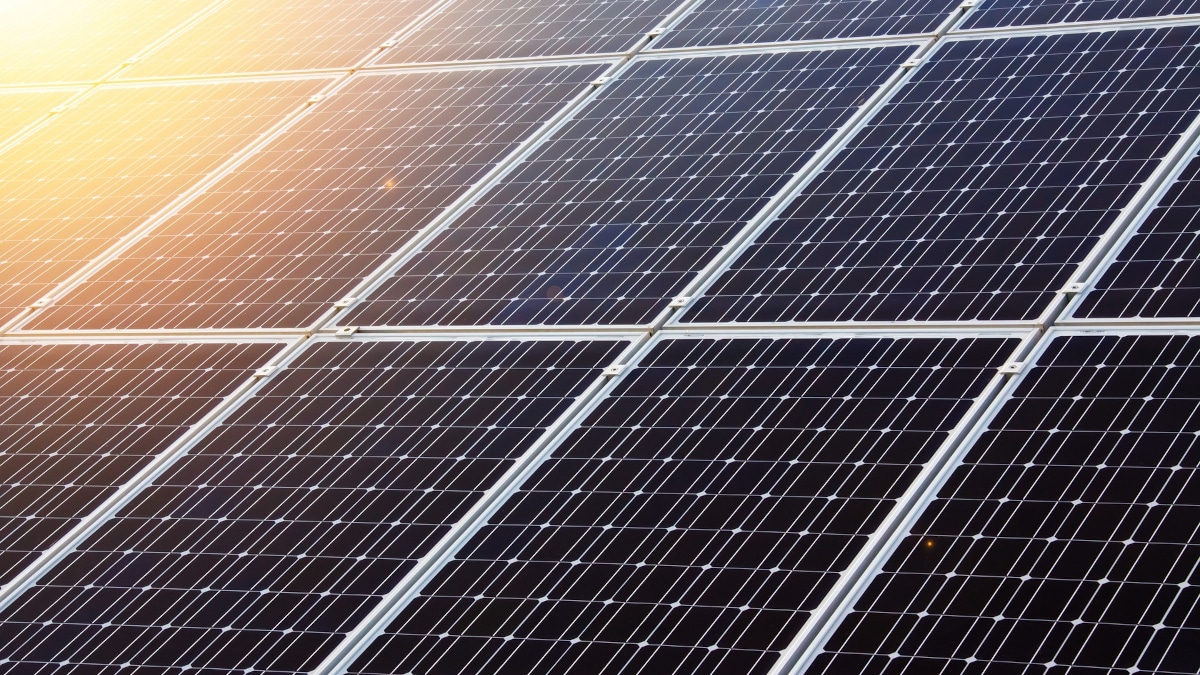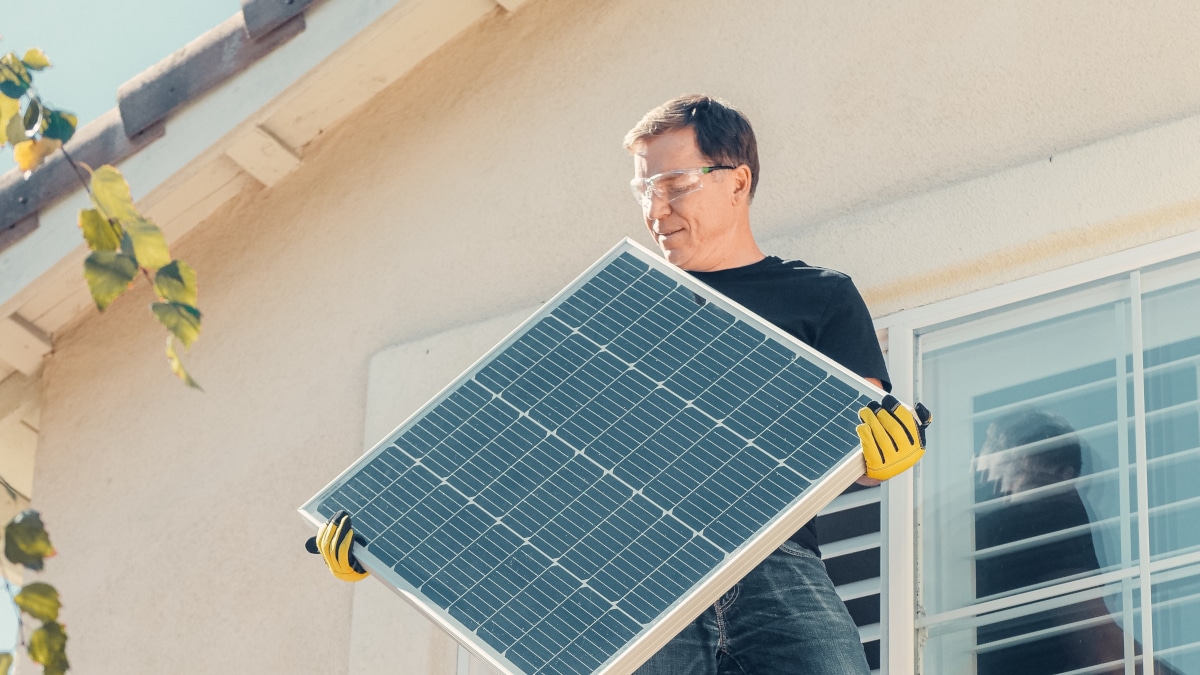Balcony PV system: Questions and answers about the balcony solar system
Are you considering purchasing a PV system for balcony to be part of the energy revolution and save electricity costs? Or would you simply like to know more about the benefits, costs and function of a balcony PV system? Then you’ve come to the right place: We answer the most frequently asked questions and give you a comprehensive insight into the topic of balcony PV system.
What is a balcony PV system?
A balcony PV system is a small PV system that is mounted on a balcony, a terrace or on the façade of a building and is simply plugged into a socket. This is a form of decentralised energy generation for everyone, in which the electricity generated is used directly on site and/or fed into the grid.
How does a balcony PV system work?
A balcony PV system consists of photovoltaic or solar modules that convert the sun’s rays into electricity. This is initially direct current. In order to use this self-generated electricity in your household, it must be converted into alternating current. This is achieved by a powerful inverter that is attached directly to the balcony PV system. The electricity generated can now be used in the household to power electronic devices (and, in the case of electric heating systems, also to generate hot water and heating).
What does a balcony PV system bring you? — Function and benefits
A balcony PV system generates renewable energy, allowing you to make your own contribution to the energy transition. A balcony PV system reduces the amount of electricity you have to draw from the grid and can therefore also lead to additional savings in energy costs. This is a major advantage, especially given the current energy prices. What’s more, you can even earn money by feeding the surplus electricity from your own balcony solar system into the public grid. You can find out how this exactly works and what is legally permitted in the article on regulations for balcony PV system.
How much electricity does a balcony PV system generate?
How much electricity a balcony PV system can generate depends on its size. Normally, a small balcony solar system with an output of 200 to 600 watts can generate up to 500 kWh of electricity per year. To put this into perspective: In a 2‑person household, the average annual consumption is around 2,500 kWh. However, this is only an approximate value. The actual power generation of a balcony PV system depends on various factors, such as the orientation of the balcony, the position of the balcony PV system, the amount of sunlight and the daily hours of sunshine.
How many solar panels can a balcony PV system have?
The size of a balcony PV system depends on the size of the balcony or the available area on the façade as well as on regulatory requirements, which you can find out about from us. Before purchasing a balcony PV system, measure the available area so that you can make the right choice in terms of size and number of solar modules.
How much does a balcony PV system cost?
The cost of a balcony PV system varies depending on size, output and quality. Usually, the price for a small balcony PV system is between 500 and 1,500 Euros. However, it is important to note that the cost of installation may be added to this if you do not want to connect your power station yourself.
Do I have to register my balcony PV system?
Yes, a balcony PV system must be registered with the grid operator and entered in the market master data register. Both are a prerequisite for commissioning and can be done free of charge. You can find more information on registration in our article on regulations and requirements for balcony PV system.
How long does a PV system last?
The service life of a balcony PV system is generally 20 to 25 years. However, this figure only refers to the PV modules. Conventional inverters, which are needed to convert direct current to alternating current, usually have a warranty period of 7–12 years. Most balcony inverters come from Chinese manufacturers, but with the Solarnative PowerStick there is now also an inverter for balcony PV system made in Germany.
Where can I buy a balcony PV system?
Can I rent a balcony PV system?
Some providers offer the option of renting a balcony PV system. This would be especially helpful for tenants who do not have authorisation to install their own balcony PV system.
How is a balcony PV system installed?
You can usually install a balcony PV system yourself using the installation instructions provided. As installation varies depending on the supplier and manufacturer, proceed step by step and strictly according to the instructions if you are installing your balcony PV system yourself.
Are there standardised specifications for the installation of a balcony PV system?
Yes, the installation of a balcony PV system is subject to certain standardisation specifications and requirements. These are set out in the photovoltaic system standard (DIN VDE 0100–551 and DIN VDE V 0100–551‑1). It is essential to read a bit more about these regulations and requirements before installation.
Can I build a balcony PV system myself?
Yes, you can actually build a balcony PV system yourself. In addition to detailed instructions, you will also need the right tools and manual skills. If you are unsure whether you are capable of installing a balcony PV system, it would be better to leave the installation to a professional company or ask qualified specialists for help.
Can I live completely self-sufficiently with a balcony PV system?
Unfortunately, the energy generated by a balcony PV system is usually not enough to cover a household’s entire electricity requirements. Particularly early in the morning and in the evening when it is dark, you are still dependent on electricity from the public grid. However, a balcony solar power system can lead to a significant reduction in the electricity purchased from the municipal supplier and thus help to reduce your energy costs.
Does a balcony PV system require special care?
No, it is usually sufficient to regularly check the solar panels of the balcony PV system for dirt and damage and to clean and repair them if necessary.



